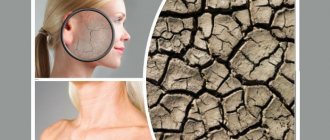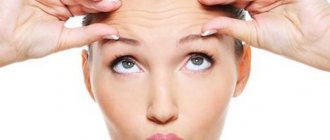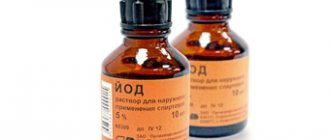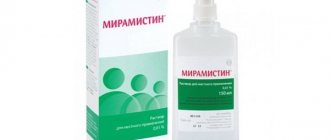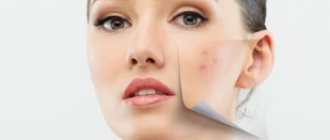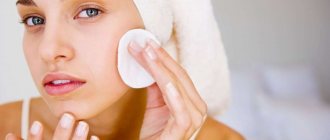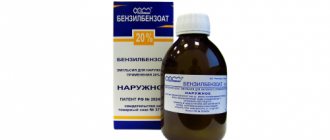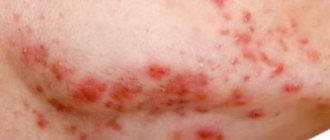Anti-acne vitamins are nutrients that normalize sebum production, promote proper metabolism, participate in the regeneration of the dermis, and give the face a healthy color. Biological compounds nourish the skin, help fight acne, improve the general condition of the body, strengthen its barrier functions, and prevent vitamin deficiency.
A pimple is an inflamed sebaceous gland that festers due to interaction with skin bacteria or improper outflow of sebum. Acne is the body’s “SOS” signal, indicating hidden health problems. If you have a lot of acne, reconsider your lifestyle and analyze your diet. Often cosmetic products do not solve the problem, but, on the contrary, aggravate the situation. Look for the cause inside the body. Also, avoid foods that cause clogged sebaceous glands.
Dietary recommendations
Excessive consumption of saturated fats (such as fatty meats, whole milk, and chocolate) and hydrogenated fats (margarine and processed foods) may contribute to acne by increasing sebum production. These foods are metabolized by body acid and lead to hyperacidity. Foods that are high in refined carbohydrates (especially sugar) and low-calorie fiber can also stimulate sebum production, interfere with bacterial defenses, and cause acne. Food intolerances (especially nuts, colas and chocolate) can also contribute to acne. Additionally, medications that contain iodine, such as seaweed products and some medications, can cause acne. An elimination diet (or kinesiology test) can identify those food intolerances that cause acne.
To prevent acne
The following foods are rarely or not eaten at all:
- Foods high in unsaturated fat: margarine, processed baked goods (baked goods, cookies), prepared foods.
- Salty, fatty foods: potato chips, French fries.
- Nuts: particularly salted almonds and peanuts.
- White flour and sugar, cola.
Eat the following foods more often:
- Raw vegetables and whole grains.
- Fresh fruits and fruit juices (not from the store!).
- Fresh fish and other seafood.
VITAMIN A
Vitamin A is one of the essential vitamins that is involved in many processes in our body: vision, metabolism, growth, reproduction, protection against infections, etc.
The vitamin comes in several forms, with the most popular being beta-carotene (also called provitamin A). Beta-carotene has antioxidant activity and is found mainly in vegetables such as carrots, spinach, cabbage, chard, and chicory.
Here are some of its beneficial effects:
- Promotes skin regeneration;
- Prevents skin inflammation and accelerates their healing;
- Reduces the production of fat by the sebaceous glands.
All of these effects will ultimately improve your skin, which is why vitamin A is a powerful weapon in the fight against acne.
The relationship between blood levels of vitamin A and acne was the subject of a 2006 study, "Do Blood Levels of Vitamin A Affect Acne?" The results showed that the higher the concentration of vitamin A in the blood, the lower the number of acne and vice versa.
Since vitamin A is not produced by the body itself, you need to consume foods and dietary supplements that contain it. One of the most popular acne treatments is vitamin A acid (also called tretinoin), which is primarily used in cream form. Tretinoin accelerates skin restoration and prevents keratinization disorders. However, vitamin A acid preparations should not be used during pregnancy.
Retinol for acne is also often used, or more precisely retinol palmitate (another form of vitamin A). This is a solution in the form of an oil, which should be taken 25 drops in the morning and 25 drops in the evening, but we recommend that you consult a doctor for a more accurate dosage that will help your skin.
Important: You should take vitamin A under the supervision of a doctor, as an overdose can cause side effects such as headache, nausea and dizziness.
How Aevita works for acne
The multivitamin preparation begins to act immediately after administration. In addition, vitamins A and E have the ability to accumulate in organs and tissues.
The therapeutic effect of taking Aevita has a prolonged effect:
- Once in the body, vitamins dissolve in the upper intestine and enter the lymphatic fluid;
- With the flow of lymph, vitamins are evenly distributed throughout the body , triggering biochemical processes;
- Vitamins are deposited in the liver and adipose tissue , where they regulate the redox processes of cells;
- Enzymes released as a result of a biochemical reaction restore the functioning of cell membranes and structural compounds;
- Under the influence of Aevit, cells are renewed and the process of skin regeneration is accelerated;
- Thanks to the action of vitamins, pores narrow and the water balance of cells is restored. Pimples, blackheads and other skin damage are healed under the control of the vitamin composition, and the skin takes on a healthy appearance.
When using the drug externally, the pattern of action remains unchanged.
The maximum concentration of vitamins in the blood is recorded 4 hours after taking the dose and spreads to all organs and tissues of internal secretion, where it acts for several weeks.
VITAMIN C
Another important vitamin is ascorbic acid or vitamin C. The body needs it to maintain immune system functions, connective tissue formation, neutralize free radicals, collagen production and skin regeneration.
How does he help?
First of all, the vitamin fights inflammation, and many people also notice that acne scars heal very quickly. Studies have shown that vitamin C strengthens the skin's barrier against bacteria and germs, which is the key to clear skin.
When treating acne, vitamin C can be used both internally and externally. For internal use, a daily dose of about 500 mg is optimal. It is enough to eat plenty of fresh fruits and vegetables every day. In addition to citrus fruits, also rich in ascorbic acid: acerola cherries, black currants, parsley and rose hips. Alternatively, you can take ascorbic acid tablets as a dietary supplement throughout the day.
VITAMIN B
Vitamin B is a group of eight vitamins - B1, B2, B3 (niacin), B5, B6, B7, B9 (folic acid) and B12. This is perhaps the most controversial vitamin when it comes to its effect on acne.
One of the most important B vitamins in treating acne is B5. This vitamin plays a crucial role in metabolism and skin regeneration. Although B5 is not 100% proven to work against acne, many acne patients taking high doses of B5 (7-10 mg/day) report remarkable results.
The effect of the vitamin on acne was studied in 1997 by Dr. med. Lit-Hung Leung. The study involved 45 men and 55 women aged 10-30 years with acne. They took 10 grams of B5, divided into 4 doses, throughout the day. After 6-8 weeks, most patients experienced a noticeable improvement in their facial skin. However, many doctors and researchers do not support high-dose vitamin B treatment.
We also do not recommend taking too high doses of B vitamins, as this may make the situation even worse.
Reception scheme
The drug is developed taking into account the daily human need for minerals and vitamins. Therefore, for acne, you need to take Complivit one tablet per day, during meals (preferably in the first half of the day).
The standard course of treatment is a month, but even if the doctor increases it, purchasing Complivit is not burdensome for a personal or family budget, since the price of the drug is very affordable (from 180 to 220 rubles). Varieties of the drug (with reduced glucose content) for people with diabetes mellitus, as well as children's versions of this drug or complexes for pregnant women, are a little more expensive.
VITAMIN D
D is a fat-soluble vitamin that is produced in our bodies through exposure to sunlight. This substance fights inflammation of all types, meaning it plays an important role in the prevention or treatment of acne. D increases immunity by producing so-called peptides - these are chemical compounds that have an antibacterial effect. Lack of vitamin D can also be a cause of poor skin.
To improve the condition of your facial skin, you must maintain optimal levels of vitamin D in your blood. Staying in the sun for 15-20 minutes daily is enough to get the required dose. But in winter and on cloudy days, when the sun's rays are not intense enough, you can start taking nutritional supplements. It is recommended to take 5000 IU of vitamin D3 per day.
As with other vitamins, you should also be on the lookout for a possible overdose of vitamin D, as overconsumption has negative effects on the heart, lungs, and bones.
Masks based on Aevit
Recipes for effective masks based on vitamins A and E are accessible and easy to prepare. They are used for any skin type.
Skin nourishing mask
The mask is suitable for oily and combination skin types. Used to eliminate skin imperfections, get rid of rashes and narrow pores.
Action of the mask:
- Vitamins improve blood circulation;
- Restore moisture balance;
- Prevents excessive secretion formation in the lower layer of the dermis.
Ingredients for preparing the mask:
- Butter 50 g;
- Beeswax 10 g;
- Olive oil 3 tablespoons;
- Juice of three medium strawberries;
- 2 capsules of Aevita.
Recipe:
- Melt wax and butter over low heat;
- Add olive oil to the resulting mixture;
- Mix strawberry juice with the contents of the drug capsule and combine with the cooled mixture;
- Mix everything thoroughly and leave for 5 minutes.
Mode of application:
- Apply the mask to the face, avoiding the eye area;
- After 15 minutes, rinse with warm water with the addition of tea tree oil;
- Lubricate the skin with Panthenol or nourishing cream.
Cosmetologists do not recommend making such acne masks every day - once a week is enough.
Facial cleansing mask
Suitable for combination and oily skin types. It is used to eliminate acne of various origins, smooth out superficial wrinkles and even out skin tone.
Action of the mask:
- The epithelium begins to divide with a vengeance, smoothing out wrinkles;
- Additional components lighten dark spots.
Ingredients for preparing the mask:
- 2 tbsp. spoons of camphor alcohol;
- Zest of two lemons;
- A glass of boiling water;
- Butter 30 g;
- Olive oil 50 ml;
- One yolk;
- Lemon juice;
- A tablespoon of liquid honey;
- 3 tbsp. spoons of mayonnaise;
- 3 capsules of Aevita.
Recipe:
- “Brew” the lemon zest with boiling water and leave for an hour;
- Strain the broth and add the remaining ingredients in the following sequence: mayonnaise, honey, camphor alcohol, 10 drops of lemon juice, olive oil, yolk mashed with butter, and finally Aevita oil solution;
- Stir the mixture and leave to brew;
- After 10 minutes, stir again and refrigerate for 7 minutes.
Mode of application:
- The mask is applied chilled, but not cold, before bedtime;
- Apply in such a way that problem areas on the skin are hidden under a layer of components, slightly driving into the skin;
- After 30 minutes, rinse the mask with running water and dry the skin with a napkin;
- Lubricate your face with moisturizer or a piece of ice with herbs.
The procedure is repeated once every 2 weeks for 6 months.
Potato mask
Suitable for oily, combination and normal skin.
Helps hide the unevenness of the dermis, eliminates rashes on the face, namely internal and superficial acne, and perfectly nourishes the skin.
Action of the mask:
- Under the influence of vitamins, the process of cell differentiation is accelerated;
- Acne heals and cellular balance is restored.
Ingredients for preparing the mask:
- Boiled potatoes in their jackets,
- 1 capsule of vitamin complex.
Recipe:
- Several peeled potatoes need to be mashed with a fork,
- Add the contents of 1 Aevita capsule to them and mix well.
Mode of application:
- The warm mixture is applied to the face in a thick layer, avoiding the mouth and eye area;
- After 20-25, remove the residue with a cotton pad and wash with warm water.
The procedure is repeated weekly for 4 months. Then you need to give the skin a rest for 3-4 weeks.
Yolk-honey mask
Suitable for dry and combination skin types.
Used to moisturize the skin, smooth out wrinkles and treat internal acne and comedones.
Action of the mask:
- The components activate metabolic processes;
- Saturate skin cells with moisture;
- Moisturizes the surface of the dermis,
- Glycerin in combination with vitamins evens out deeper wrinkles.
Ingredients for preparing the mask:
- 1 teaspoon liquid honey;
- Yolk of 1 egg;
- Olive oil 5 g;
- Half a teaspoon of glycerin;
- Aevit 1 capsule.
Recipe:
- Mix the ingredients thoroughly and leave for 10 minutes;
- The consistency of the mixture should resemble store-bought sour cream;
- The thick mixture can be diluted with brewed leaf green tea.
Mode of application:
- Apply the mask with massage movements, slightly driving into the skin;
- After 15 minutes, remove the remaining mixture from your face;
- Wash with warm chamomile infusion and dry your face with a sterile cloth.
In order to eliminate rashes, the procedure is carried out once every 2 weeks for 5 months, as an “anti-aging” procedure - weekly, for about 3 months.
Cleansing mask
Suitable for all skin types.
Used to eliminate oily shine, cleanse pores and moisturize the skin.
Action of the mask:
- Promotes the healing of cracks and microtraumas on the facial skin;
- Deeply cleanses pores and eliminates inflammation;
- Thanks to metabolic processes under the influence of vitamins, excessive sebum production is regulated.
Ingredients for preparing the mask:
- A pinch of sea salt;
- Yolk 1 pc.;
- 2 capsules of Aevita.
Recipe:
- Grind the yolk with salt and add the oil from the capsule;
- Mix everything well and put in the refrigerator for 5 minutes.
Mode of application:
- Apply a thin layer to clean skin;
- Rinse with water after 10 minutes and wipe with chamomile decoction.
The cleansing mask should not be used frequently - once a month is enough. Can be used as a facial scrub.
OMEGA 3 AND 6
Omega-3 and Omega-6 are the two main unsaturated fatty acids that our body does not produce. Therefore, we must get them through food. Omega-3 and omega-6 fatty acids are involved in preventing inflammation and various heart diseases, regulating blood pressure, stimulating circulation, and much more.
Dr. Jung and his colleagues at Seoul National University tested the effect of omega-3 and gamma-linolenic acid (GLA) supplementation on acne. The study included 45 young patients with an average age of 23 years. Result: Both omega-3 and GLA reduced inflammatory acne by 40-50% and non-inflammatory acne by approximately 20%.
What you need to keep in mind is the balance between omega-3 and omega-6 fatty acids. Most people consume too much omega-6 at the expense of omega-3 fatty acids, and too much omega-6 causes inflammation and can make acne worse.
A healthy ratio is - the amount of omega-6 should exceed omega-3 by a maximum of 4 times, no more.
Kinds
- Open comedones or blackheads. Area of distribution: chin, chest, back, cheeks, nose.
- White or closed comedones, millet, wen. Most often they appear on the chin and forehead, looking like a grain.
Comedones (closed and open) are the first sign of acne and are non-inflammatory in nature. However, improper skin care aggravates the situation and leads to serious consequences (the appearance of unevenness, age spots on the surface of the dermis).
3. Bluish-red or pink papules. They are inflamed areas in the form of compactions, tubercles, indicating an advanced form of comedones.
4. Yellow, gray pustules. Essentially, these are ulcers that form papules on the surface.
5. With painful nodes inside. They are located deep under the skin, with a diameter of over 5 millimeters.
6. Crimson seals made of nodules, up to 5 centimeters. Cysts attack different parts of the face and body. This is the most severe degree of acne.
Remember, if you can fight comedones and papules on your own, then you need to be especially careful with pustules, inflamed painful nodes and purple seals. Under no circumstances should you get rid of them yourself, as this can seriously complicate the problem and leave a mark on your face in the form of scars.
Squeezing does not lead to the disappearance of rashes; on the contrary, it stimulates the appearance of new acne and pimples.
BIOTIN
Biotin, also called vitamin B7 or vitamin H, is a water-soluble vitamin that promotes healthy nails, hair, and skin. Therefore, it also received the nickname “beauty vitamin”.
But among those who suffer from acne, biotin has no beneficial effect. Many people even notice outbreaks of acne on their face after they start taking biotin as a dietary supplement.
Can biotin cause acne? The answer is both “yes” and “no”. So far, no studies have found a direct connection. However, it reduces B5 levels in the blood, which may contribute to worsening skin conditions.
On the other hand, biotin supports skin regeneration and can therefore be very helpful in treating acne. The daily requirement for biotin is about 0.06-0.15 mg for an adult. We do not recommend taking any more.
In any case, everything is individual, and biotin may have a completely different effect on your skin, however, there is still a possibility of a negative reaction.
Reviews
On specialized resources, women and, less often, men share opinions about the effectiveness of Aevit capsules for acne. Reviews are written by both adults and young girls/guys suffering from teenage acne.
The comments are positive. From the responses we can conclude that the vitamin complex successfully eliminates acne typical of teenagers, skin problems caused by nervous disorders, and rashes caused by poor diet. The vast majority note an improvement in the condition of the face, smoothness and elasticity of the dermis as a bonus from treating the rash with an oil complex.
SELENIUM
Selenium is an important element that can help with acne. Research has shown this beneficial effect of selenium on acne:
In 1990, scientists analyzed the blood of 37 men with inflammatory acne between the ages of 18 and 25 and compared it with the blood of another 37 men with clear skin. Men with acne had significantly lower selenium levels than healthy men. In acne sufferers it was 1.59 and 1.22, respectively, and in healthy men it was 1.80 and 1.36. Women with acne were also compared and the results were the same: 1.50 and 1.10 for women with acne and 1.93/1.34 for others.
These results were later confirmed by other studies.
HOW DOES SELENIUM WORK AGAINST ACNE?
First of all, selenium increases the levels of antioxidants in the blood, and antioxidants are critical for preventing pore clogging. In addition, selenium helps inhibit inflammation by reducing the activity of NF-kappa B, a transcription factor that stimulates the release of many inflammatory chemicals found behind acne. To increase its antioxidant effect, it is recommended to take selenium along with vitamin E.
ZINC
Zinc is well known among acne patients for its excellent anti-pimple effects. Numerous studies have been conducted in recent decades that have demonstrated the beneficial effects of zinc on acne.
Turkish researchers compared zinc levels in patients with acne with zinc levels in people without acne. The study involved 56 people with clear skin and 94 with acne. According to the results, those with acne had 24% lower zinc levels than those without acne.
How exactly does zinc fight acne?
- It protects against acne-causing bacteria;
- it inhibits (prevents) pore contamination;
- It reduces the effect of hormones on the skin;
- It has a strong antioxidant effect;
- It accelerates skin regeneration.
Unfortunately, zinc deficiency is common today, partly due to the processing of most foods and partly due to poor eating habits in most people. Therefore, it is necessary to take zinc in the form of dietary supplements. Especially for acne sufferers. According to the World Health Organization, the recommended daily intake for zinc is 15 mg for men and 12 mg for women.
But it's not just the amount, but also the form of zinc you take that matters, as not all forms have the same effect on acne. According to research, zinc picolinate and zinc methionine work best for acne because they have better bioavailability. External use of zinc ointment is also very helpful, as it very quickly draws out pus and heals acne.
Reasons for appearance
Content:
- Reasons for appearance
- Kinds
- Vitamins for acne
- How to get rid of acne?
- Foods for and against acne
- Conclusion
Rashes on the skin of the face indicate a violation of the internal state of the body. In adolescence, acne is most often the result of hormonal changes; in adulthood, it is due to poor skin care, poor nutrition, and hidden problems with internal organs.
Causes of acne:
- Hyperkeratosis. Excessive keratinization of the skin is associated with deficiencies of vitamins A and B2 in the body.
- Lipid imbalance is associated with changes in the function of the adrenal cortex, pituitary gland, thyroid gland and errors in nutrition (food poor in fiber, proteins, rich in easily digestible carbohydrates, fats).
- Increased activity of the sebaceous glands due to excess androgens - male sex hormones.
- Use of hormonal contraceptives, glucocorticoids.
Girls may develop skin rashes 2 to 3 days before the start of menstruation.
Taking antiepileptic and antituberculosis drugs.
- Stressful conditions, depression.
- Increased blood glucose levels, disruption of the microflora of human skin, changes in the composition of the secretion of the sebaceous glands.
- Hereditary predisposition.
- Frequent touching of the face with dirty hands.
- Failure to comply with personal hygiene rules.
- Unfavorable living conditions.
- Avitaminosis.
- Lack of sleep.
- Weakening of the immune system.
- Pathology of the digestive system, dysbacteriosis.
- Incorrectly selected cosmetic products.
- External irritants: burning sun, humid climate, hot weather.
The main causes of inflammation of the sebaceous glands are disturbances in the gastrointestinal tract and endocrine system. If rashes are a regular occurrence, you should undergo a full medical examination. Acne is not as harmless a disease as it might seem at first glance. This is an iceberg indicating health problems that require immediate identification and elimination of the cause.
Remember, new pimples often appear as a result of squeezing out old ones, as they infect uninfected areas of the skin.
L-LYSINE
L-lysine is an essential amino acid that is not produced by our body. Lysine's main role is in collagen formation and tissue repair, which can help with acne. However, some people also noted a negative effect. Why is that?
Research suggests that lysine may have positive effects on the skin, but some people may also be sensitive to it. Another reason for negative experiences may be that long-term consumption of L-lysine reduces blood levels of vitamin B6, which can contribute to new inflammation. The only way to know how L-Lysine affects your skin is by testing it on yourself.
L-CARNITINE COMBINED WITH VITAMIN B-5
Some vitamins have a better effect on acne when used in combination with other substances.
One of the most powerful anti-acne combinations is L-carnitine and B5. B5 (pantothenic acid) is involved in the metabolism of fats and oils. Increasing oil metabolism reduces sebum production, which reduces the appearance of acne.
In 1995, Dr. Lit-Hung Leung tested his hypothesis that pantothenic acid deficiency could be a cause of acne. He gave his acne patients 5-10 grams of pantothenic acid per day, which resulted in significant improvement in their skin.
Despite the positive effect on acne, some patients, however, reported side effects (usually gastrointestinal flatulence). This is because Leung gave too high a dose of pantothenic acid.
You can avoid overdosing on vitamin B5 and its side effects by supplementing with L-carnitine. L-carnitine is a chemical compound that is formed from lysine and methionine and is carried by fatty acids across the mitochondrial membrane, where they can be oxidized. Those. L-carnitine serves as a vitamin B5 enhancer in the fight against acne.
Already tested combination against acne and blemishes: 3 times a day 750 mg of Pantethine with 250 mg of L-carnitine.
BREWER'S YEAST
Brewer's yeast is a rich natural source of B vitamins, minerals and the amino acids lysine and tryptophan. Brewer's yeast has been known as a medicine for over 5,000 years. Brewer's yeast provides standardized levels of B vitamins and is suitable as a dietary supplement and for concomitant therapeutic use in skin conditions such as acne. They mainly contain: vitamin B1, B2, B5, B6, B12, biotin, niacin, folic acid, pantothenic acid, etc.
